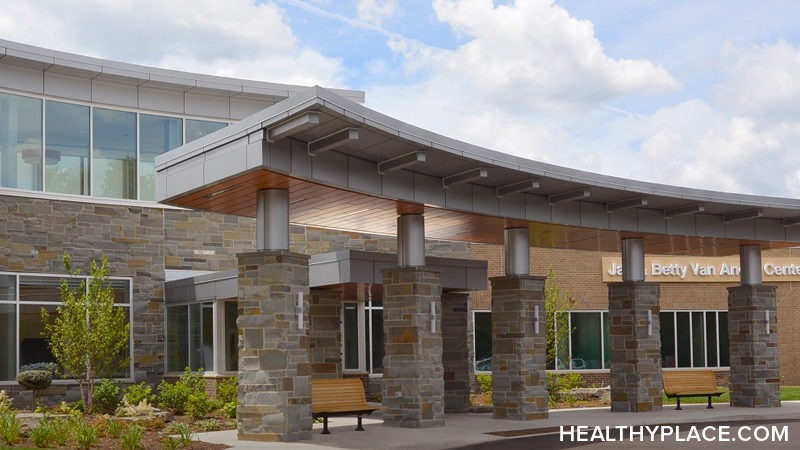Dissociative Identity Disorder (DID) Treatment Centers

Some prefer to seek out a dissociative identity disorder (DID) treatment center for help as DID treatment can be quite intensive. Treatment facilities that work with dissociative identity disorder are not generally DID-specific, but rather, have it as one of their specialties, possibly along with other trauma-related disorders.
Who Needs A Dissociative Identity Disorder Treatment Center?
Some people with dissociative identity disorder can be successfully treated in an outpatient setting by a mental health professional, but, for others, a DID treatment center is a good choice. If a person is experiencing frequent or profound and damaging dissociative episodes with multiple personalities (alters) and long-term dissociative amnesia, an intensive inpatient dissociative identity disorder treatment facility may be warranted. Entering an inpatient facility is a personal choice but one that can help the individual and his or her family.
One of the advantages of a DID treatment center is that it can focus on a person holistically by treating a person with a team rather than one, individual healthcare professional who may only specialize in one area.
What Happens When You Check Into A DID Treatment Facility?
The check-in process is different for different DID treatment facilities, but it is likely something similar to this:
- A full psychiatric and physical health history will be taken.
- Tests, such as blood tests, may be ordered.
- Any psychiatric diagnoses will be revisited and confirmed.
- An assessment for possible medication use may be done by a psychiatrist.
Once these things are done, a treatment plan can be developed and different forms of DID therapy may start.
What Therapies Are Offered at DID Treatment Centers?
Treatments and therapies differ per dissociative identity disorder treatment center, but DID treatments offered may include:
- Individual psychotherapy sessions (up to five per week)
- Specific behavioral therapies like dialectical behavior therapy (DBT) or cognitive behavioral therapy (CBT)
- Family therapy
- Trauma-focused therapies like eye-movement desensitization and reprocessing (EMDR) therapy
- Anger management
- Sleep hygiene
- Psychoeducation
- Neurofeedback
- Creative therapies such as art and music therapy
- Mindfulness and meditation
- Yoga
- Acupuncture
- Massage
Different therapies may work with the individual or be conducted in a group setting.
Finding a Dissociative Identity Disorder Treatment Center
It is important, when looking into treatment centers, to find one with a specialized program for dissociative disorders or trauma survivors. The easiest way to locate a DID treatment facility near you is to search for it on an Internet search engine like Google. Make sure that you check out any dissociative identity disorder treatment center in person before considering admittance to make sure you feel that their program is right for you.
APA Reference
Tracy, N.
(2022, January 3). Dissociative Identity Disorder (DID) Treatment Centers, HealthyPlace. Retrieved
on 2025, December 4 from https://www.healthyplace.com/abuse/dissociative-identity-disorder/dissociative-identity-disorder-did-treatment-centers



